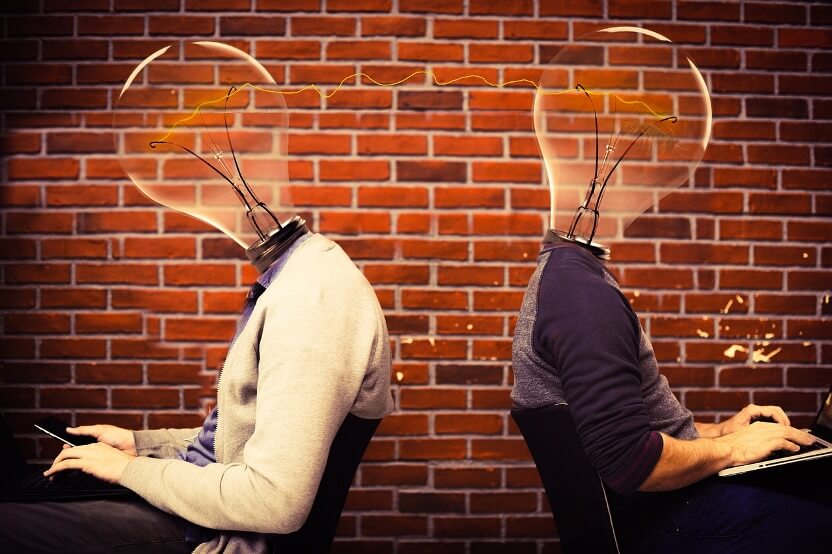Hidden Depression: Signs to detect it
The hidden depression, as its name reveals, it is not easy to recognize and therefore to diagnose, since in most cases it is hidden behind a physical problem or extreme fatigue.
In fact, patients with hidden depression tend not to make reference to a setback or emotional disorder. The signals can become visible in a specific situation or occur with daily mood swings, the difficulty of concentrating or being carried away by feelings of sadness and pessimism.
Table of Contents
Symptoms of hidden depression
Similar to those that are evident in other types of depression, such as physical discomfort, headaches, digestive disorders, pain or tension of shoulder and neck, tiredness that does not subside with sleep. Symptoms that instead of forward, persist and may even be more severe, causing physical and emotional discomfort.
The main difficulty for its diagnosis lies in the fact that not all people relate these symptoms with a possible depression and in other cases come to hide, as if the fact to ignore or underestimate the signs would make them disappear.
Depression, however, does not disappear, but it is advisable to look for the cause behind it and that is usually related to something that is not going well in our life or that we do not know how to change or face.
Sleeping Problems
If your loved one doesn’t sleep well overnight or wakes up sweating at night without knowing why, it could be a warning sign that something is wrong.
Poor sleep is one of the direct consequences of depression, in fact, seven out of ten cases, according to medical data, behind insomnia there is depression. Problems to fall asleep or wake up too often.
Loss of Appetite
Most experts now believe that there may be a strong relationship between eating disorders and depression. These are two different diseases; although one may lead to the other, or they may arise at the same time. If you notice that a loved one has changes in appetite, try to talk to him/her about them and urge them to get treatment.
Depression causes loss of appetite, with the risk of unbalancing the diet. This is a vicious circle, because if we eat badly we will feel less energetic. Another risk is to abuse too high-calorie foods or alcoholic beverages.
Psychosomatic Illnesses
In a depressed state, the person may complain of discomfort in the heart area, tension in the hands and feet, shortness of breath, headache, toothache, and other ailments. And most likely, a medical check-up will show that with health everything is in order.
The appearance of pain sensations can be the result of a state of anxiety. In turn, pain often leads to further anxiety and stress, thus forming a vicious cycle that forces the person to suffer from sudden psychosomatic pain.
Avoid situations where you are not in control
To identify depression it is necessary to take into account if the person avoids situations where they do not have total control. A person with hidden depression may like to cook, but find it difficult to sit with guests and enjoy food, for example. The need for control is quite strong and they worry about what might disrupt their control.
Change of Pace at Work
A change in work pace can also be a red flag for a depressed state. The person may stop taking care of everyday tasks, start to forget things, get tired faster, and think that doing something does not make sense.
An opposite reaction is also possible, when previously not very active people become addicted to work, with a busy schedule and start collecting achievements. In this way they try to escape their feelings and convince themselves that life has meaning.
Avoid Social Contact
The tendency to ignore emotional state can lead in some cases to try to avoid the social contact for not having to invent excuses about how we really are. Depression and this is very important, make us emotionally weaker, when what we need to do is just the opposite, ask for help and be heard.
Pessimistic Ideas
See everything black or become pessimistic with the attitudes and abilities of each one. Perceiving the life of black color makes us lose a lot of good feelings.
How to help yourself and loved ones
- A possible state of depression can be verified with the Beck Depression Inventory or with the Zung scale.
- If you see symptoms of depression in a loved one, try to talk to him about his health and offer help. If the person does not allow contact, you have to leave them alone for a while and monitor their condition.
- Do not underestimate the problems of your loved ones, do not be ironic and do not laugh at the situation. The words “cheer up”, “enough” and “relax” do not work in this case.
- Help with small things, with everyday problems, depression does not leave energy to solve them.
- Do not force a person who is depressed to lead an active life, he is still unable to do so.
- Try to pause communicating with a depressed person so as not to plunge into a similar state.
- Disprove the myths that depression does not need to be treated by a specialist. Suggest professional help.
- Pay attention to the people around you. Sometimes, behind a smile and the appearances of an ideal life on Instagram, big problems can hide.
Conclusion
Of course, all these indicators must be evaluated carefully. Depression is more than a state of sadness or disguised denial and has nothing to do with a temporary state of confusion either. We are talking about a condition that must be evaluated by trained personnel.
image credit: health.com


